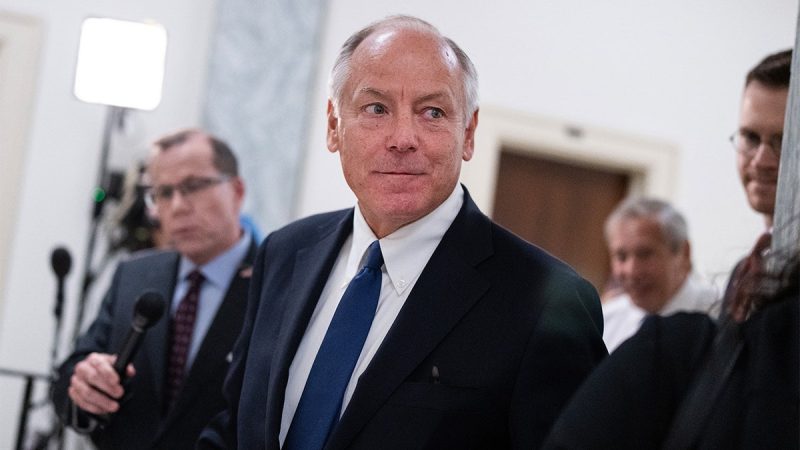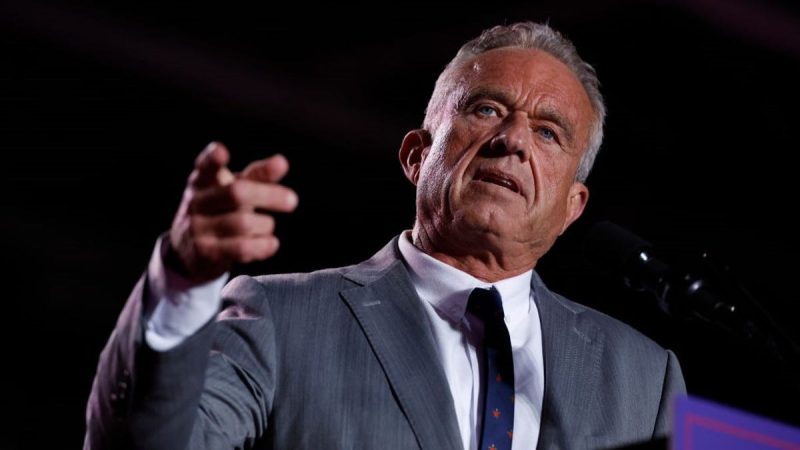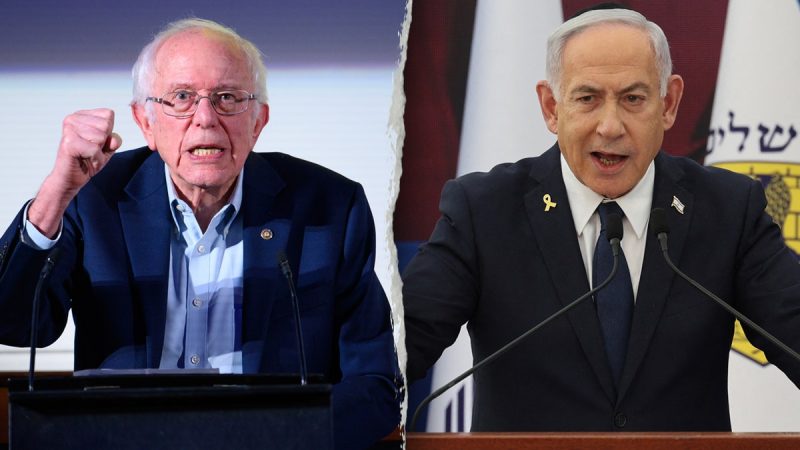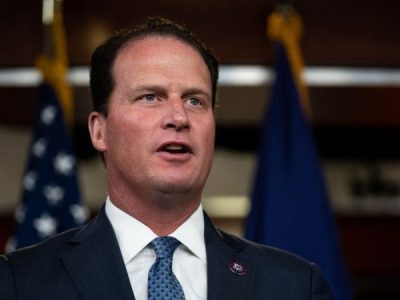
Speaker Mike Johnson, R-La., is delaying a key vote on legislation aimed at advancing President Donald Trump’s agenda in the face of a likely rebellion on Wednesday evening.
It comes as fiscal hawks in the lower chamber have raised alarms at the Senate’s version of the plan, which guarantees far fewer spending cuts than the House’s initial offering.
Johnson told reporters he would aim to hold the vote Thursday, the last scheduled day in session for House lawmakers before a two-week recess. He added, however, that lawmakers could be kept in session next week if needed to pass the legislation.
‘I don’t think we’ll have a vote on this tonight, but probably in the morning,’ the speaker said. ‘We want everybody to have a high degree of comfort about what is happening here, and we have a small subset of members who weren’t totally satisfied with the product as it stands. So we’re going to we’re going to talk about maybe going to conference with the Senate or add an amendment, but we’re going to make that decision.’
He also said there were multiple ways the House could move forward and Republicans would look at each one. Johnson said, ‘Everything is moving along just fine. We have a little bit of room here to work, and we’re going to use that.’
The House floor was paralyzed for over an hour during an earlier unrelated vote as Johnson met with Republican holdouts behind closed doors.
Two sources in the room said the holdouts did not speak with Trump, though it’s not clear if he called people individually.
Outside that room, in the cavernous House chamber, lawmakers began filtering out or impatiently pacing as time went by with little information.
Democrats, meanwhile, began calling for Republican leaders to close the lingering vote.
Tensions were high for those GOP lawmakers who remained on the House floor, Fox News Digital was told – and much of that frustration is aimed at Johnson.
‘I think he’s quickly losing faith from the rest of us. I mean, he kept the entire conference out on the floor for 80 minutes while you play grab-a– with these people,’ one House Republican fumed. ‘And all day it was like, ‘Oh, we’re going to get this done.”
That House Republican said, ‘All the chatter we were hearing was [holdouts were] down to single digits. But 17, 20 people were in that room. So clearly there was a much bigger problem than they were letting on all day.’
The gap between the House and Senate versions is significant; the House version that passed in late February calls for at least $1.5 trillion in spending cuts, while the Senate’s plan mandates at least $4 billion.
Some conservatives are also wary of congressional leaders looking to use the current policy baseline to factor the total amount of dollars the bill will add to the federal deficit. The current policy baseline allows lawmakers to essentially zero out the cost of extending Trump’s 2017 Tax Cuts and Jobs Act (TCJA) because they are already in effect.
‘We’ve got to have something more substantive out of the Senate. If you were going to sell your house, and I offered you a third of the price, you would laugh,’ Rep. Andy Ogles, R-Tenn., one of the earliest holdouts, told reporters on Wednesday.
Trump has directed Republicans to work on ‘one big, beautiful bill’ to advance his agenda on border security, defense, energy and taxes.
Such a measure is largely only possible via the budget reconciliation process. Traditionally used when one party controls all three branches of government, reconciliation lowers the Senate’s threshold for passage of certain fiscal measures from 60 votes to 51. As a result, it has been used to pass broad policy changes in one or two massive pieces of legislation.
The first step traditionally involves both chambers of Congress passing an identical ‘framework’ with instructions for relevant committees to hash out policy priorities in line with the spending levels in the initial legislation.
The House passed its own version of the reconciliation framework earlier this year, while the Senate passed an amended version last week. House GOP leaders now believe that voting on the Senate’s plan will allow Republicans to enter the next step of crafting policy.
‘Why does President Trump call it one big, beautiful bill? Because it does a lot of critically important things, all in one bill, that help get this country back on a strong footing. And what else it does is it produces incredibly needed savings,’ House Majority Leader Steve Scalise, R-La., said during debate on the bill.
The legislation as laid out would add more money for border security, including Immigration and Customs Enforcement (ICE), as well as some new funding for defense.
Republicans are also looking to repeal significant portions of former President Joe Biden’s green energy policies, and institute new Trump policies like eliminating taxes on tipped and overtime wages.
But House conservatives had demanded added assurances from the Senate to show they are serious about cutting spending.
The House and Senate must pass identical versions of the final bill before it can get to Trump’s desk to be signed into law.
They must do so before the end of this year, when Trump’s TCJA tax cuts expire – potentially raising taxes on millions of Americans.
Trump himself worked to persuade holdouts both in a smaller-scale White House meeting on Tuesday and in public remarks at the National Republican Congressional Committee.
He also fired off multiple Truth Social posts pushing House Republicans to support the measure, even as conservatives argued it would not go far enough in fulfilling his own agenda.
‘Republicans, it is more important now, than ever, that we pass THE ONE, BIG, BEAUTIFUL BILL. The USA will Soar like never before!!!’ one of the posts read.










